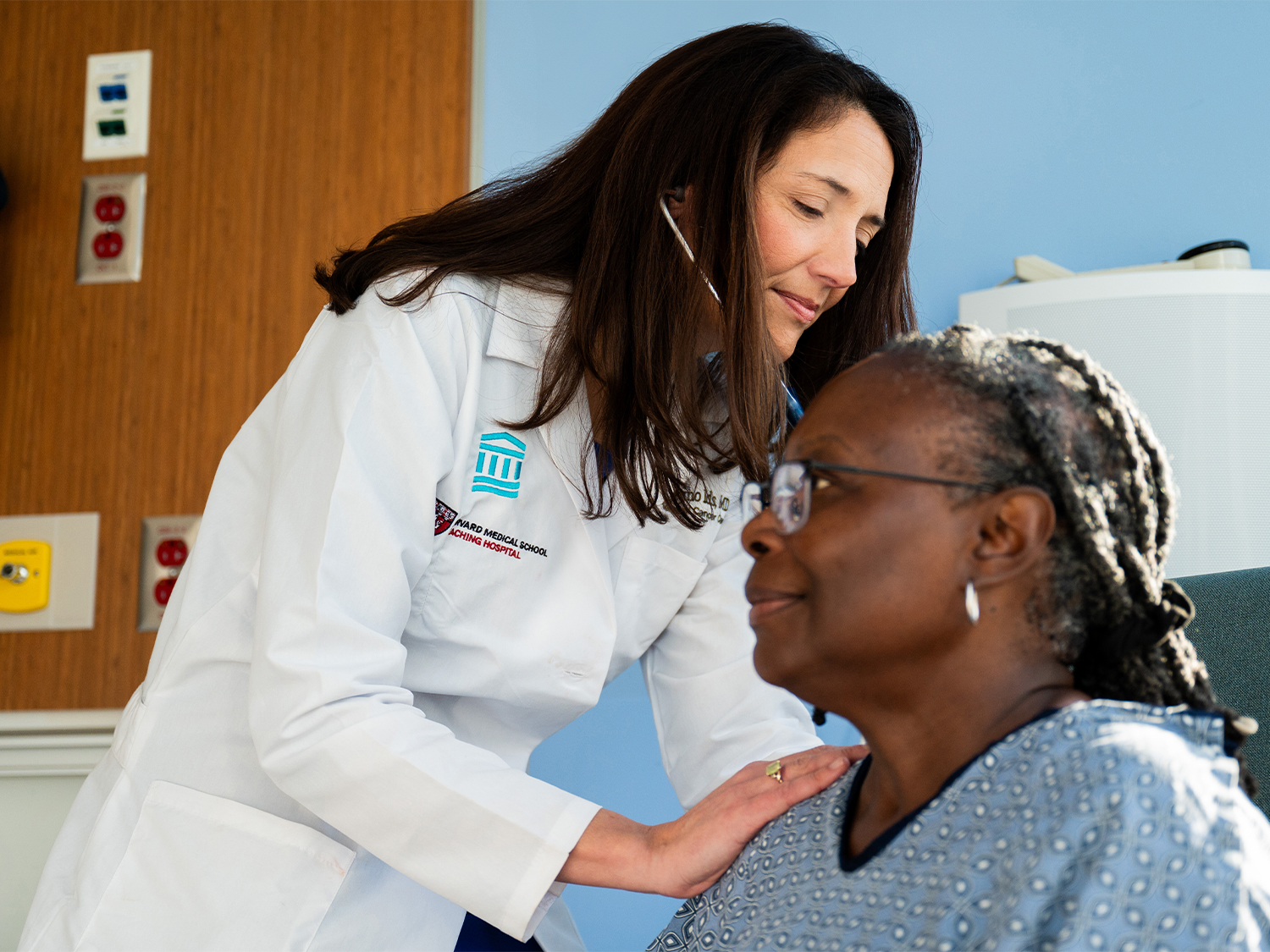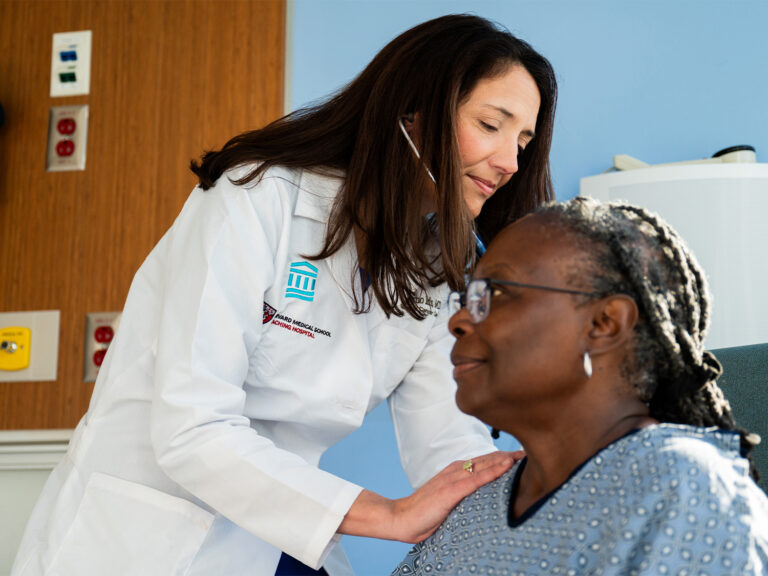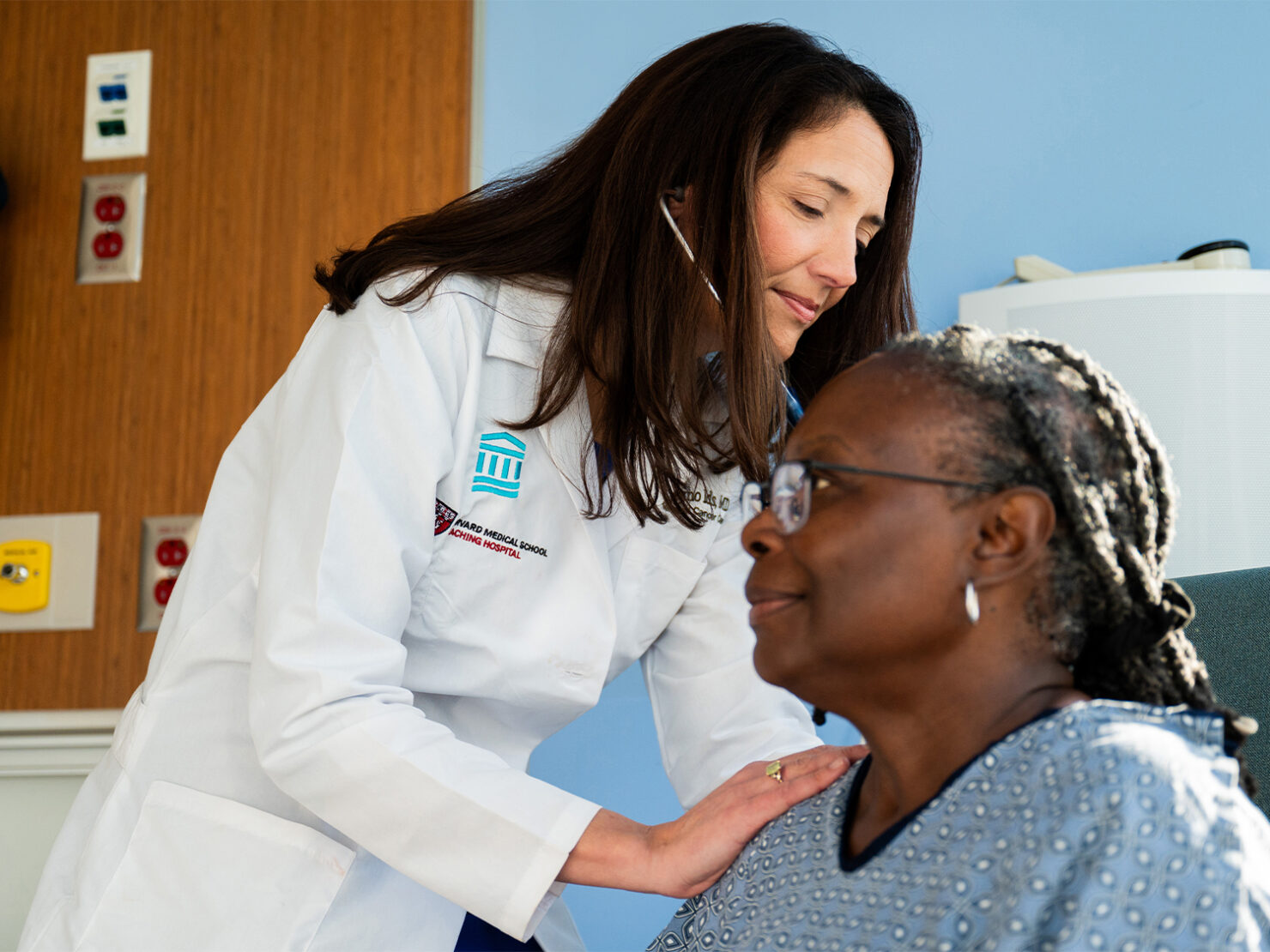Kerry Reynolds, MD, founded and currently leads the Severe Immunotherapy Complications Service at Mass General Brigham — the only program of its kind in the country to focus on the side effects of immunotherapy. In her role as director, Dr. Reynolds helms a team on the cutting edge of major breakthroughs in cancer treatment. She shared what led her to this branch of medicine, what’s next for immunotherapy and the advice she would give to women considering careers in the field.
What first inspired you to get into medicine?
Like so many in medicine, my path was shaped by a deeply personal experience with cancer. My mom has had breast cancer now three times — two of those times were incredibly serious. Yet, she is still here today, a lively 70-year-old and the best grandmother to walk the earth. Watching her strength and resilience — and her care team — sparked something in me early on: I wanted to help patients like my mom through the darkest time in their lives. Neither of my parents went to college, and there wasn’t a single doctor in my family. I grew up in a small town in Missouri, where dreams often stayed close to home. But, inspired by the support of all who knew me, and with a deep sense of purpose, I found my way to this career.
What attracted you to the immunotherapy field?
What drew me to the field of immunotherapy was the sense that we are witnessing one of the most exciting breakthroughs in cancer care! These therapies have revolutionized outcomes for many patients, offering hope where there was once none. And yet, what makes the field even more compelling to me is how much we still don’t understand. The science is evolving in real time, and patient presentations are changing before our eyes. This turning point represents both incredible opportunity and responsibility. We’re just beginning to uncover how the immune system interacts with cancer — and how, in unleashing it, we can also trigger serious, sometimes life-threatening side effects. This intersection of learning, discovery, complexity and true urgency is what attracts me to it.
How is this work transforming cancer care?
It’s helping us move beyond simply treating cancer with new therapies to truly caring for the whole patient for the entire journey. As immunotherapy becomes a cornerstone of cancer treatment, we’re seeing remarkable outcomes — but also a new spectrum of immune-related side effects that can affect any organ system and often mimic other diseases. By studying these complications closely, developing the expert clinical and research teams and training the next generation to recognize and manage them, we’re ensuring that patients not only survive but live well. This work allows us to keep patients on lifesaving treatments longer, treat their very serious side effects, reduce hospitalizations and improve and sometimes save their lives, all while pushing the field forward through research and discovery.

What are the biggest joys in your work? The biggest challenges?
One of the greatest joys of the Severe Immunotherapy Complications Service is the opportunity to make a real difference for patients at a critical moment — when they’re facing not only cancer, but also unexpected and potentially life-threatening side effects from their treatment. And right behind that is this team of more than 60 people — a multidisciplinary team that works across silos, trains the next generation and drives cutting-edge research that brings so much meaning to my life and my work. The work here is shaping national and international standards. That’s an incredible feeling, and I am so proud of the team.
The challenges, however, are real. The field is still young, and there’s so much we’re learning in real time. We often face complex, fast-moving clinical situations without clear treatment guidelines. It can be emotionally and intellectually intense. And, because the work spans so many areas, it can be taxing on all of these subspecialties, requiring everyone to go above and beyond all the time. Another challenge has been advocating for the infrastructure and funding that this effort truly needs.
Where do you get your best ideas?
Honestly, my best ideas often come in the middle of the night. There’s something about the quiet — when everything else is still, when my two kids are tucked in their beds — that allows space for creativity and clarity. I keep a notes tab on my phone just for those moments. It’s filled with half-formed ideas, project names, questions I want to ask or things I want to build. More than a few initiatives started as middle-of-the-night thoughts that just wouldn’t let go. Then, my best time of day is absolutely the morning. I get more done between 5:00 and 8:00 am than I do the entire rest of the day.
What advice would you give to women considering a career in your field?
Lead with what brings you meaning and purpose. This may be my Missouri roots talking, but let connection be your anchor. Build genuine relationships with your colleagues; allow space for friendship, laughter and trust in the work. Connect deeply with your patients — invite them to be part of the team when you can. There is real joy and meaning in those moments of shared humanity. Even in the hardest situations, when you lose a patient, consider their family. Sometimes, being part of research — contributing to something larger than themselves — becomes a powerful and lasting legacy. These connections are what will sustain you, ground you and remind you why you chose this path in the first place.
And as for work-life balance, don’t chase a perfect equation. It doesn’t exist. Instead, my way is to focus on integration. Blend your life and your work in a way that feels authentic to you. Protect what matters most — both in your personal life and your professional life — and strive to keep both sides balanced enough that neither hits the absolute bottom. Some days your family will come first, some days your patients will. That’s not failure on either side. That’s this life that we get to choose.
To learn more about supporting immunotherapy research at Mass General Brigham, contact us.




